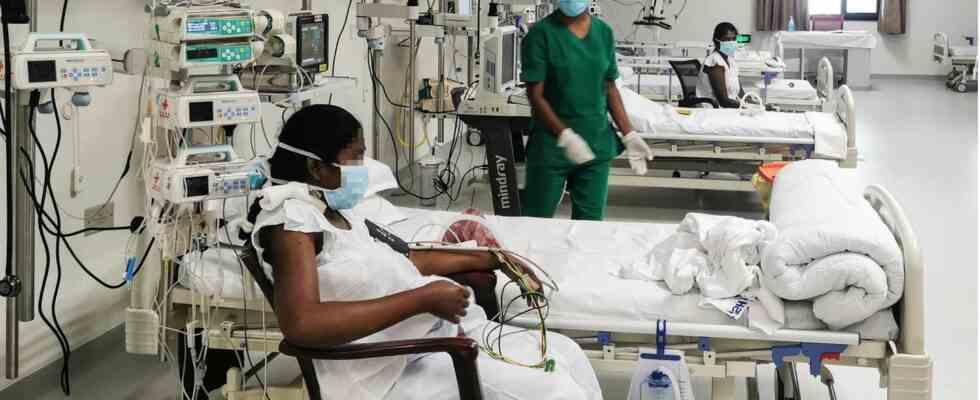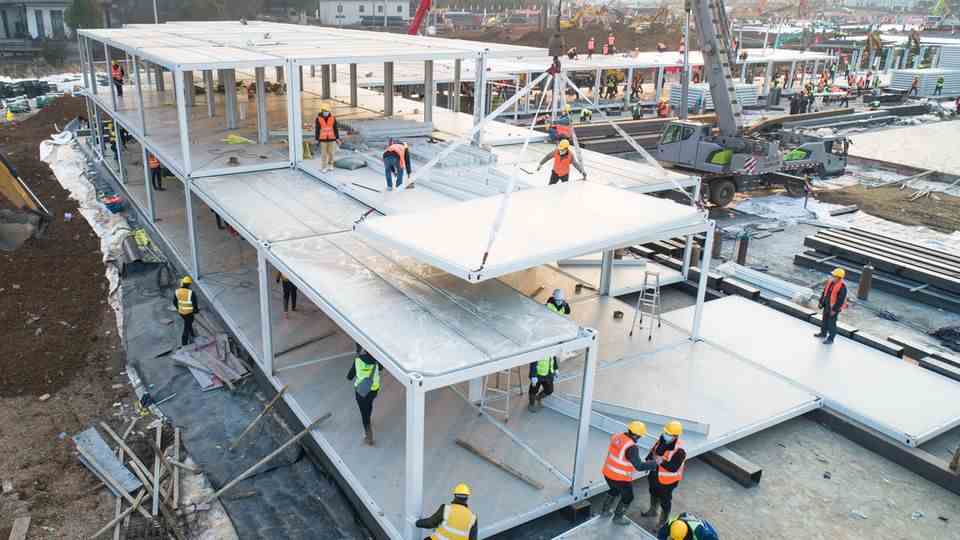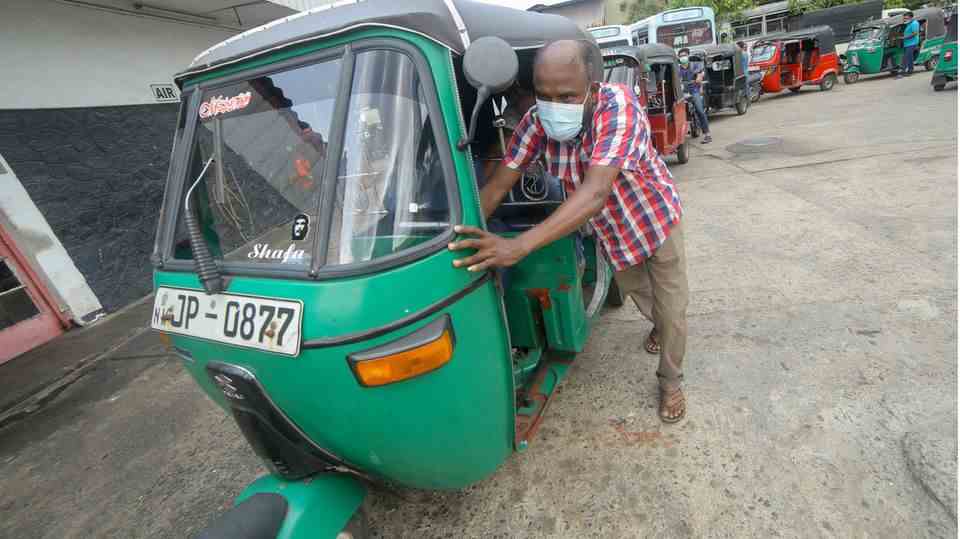economic crisis in the island nation
Sri Lanka’s hospitals on the brink: ‘What should I do? My child may not live much longer’
Scene from a hospital in Sri Lanka (archive image)
© Shan Xijiangongjituan/Xinhua News Agency/Picture Alliance
Sri Lanka is groaning under a severe economic crisis. A report from a hospital now shows how bad the situation is for people in the island nation in the Indian Ocean.
The issue of petrol and diesel is limited to 20 liters per car, there is a shortage of food, there are repeated power cuts and the country is insolvent: the island state of Sri Lanka is in the worst economic crisis since its independence in 1948 – the consequences for around 22 million people in the country are becoming more and more dramatic. The Red Cross in the country fears an “unprecedented humanitarian crisis”.
Report from hospital in Sri Lanka
A report by the US broadcaster CNN uses a clinic in the capital Colombo to show what the shortage in the country already means. According to this, doctors sometimes have to operate in the glow of their cell phone flashlights, medical devices such as tubes for ventilation or catheters have to be reused, and there is a lack of the most necessary medicines.
Experts assumed that the number of deaths due to the lack of medical equipment could exceed the number of 16,000 Covid 19 deaths in Sri Lanka: “This is a crisis and we cannot predict how bad it will be” , Athula Amarasena of the State Pharmacy Association told the broadcaster.
Meanwhile, parents hoped for drugs that could mean survival for their children. A three-year-old urgently needs an antispasmodic drug, a seven-year-old needs a drug for her chemotherapy. But the preparations are not available anywhere in the country, the desperate parents told CNN reporters. “Even with money you can’t do anything,” said one father. Another: “What should I do? My child may not live long if they don’t receive the medication.”
The shortage also burdens the medical staff. “We had to make difficult decisions, especially in the intensive care unit, for example who is allowed to live and who is not,” a doctor told the broadcaster. “We can continue to take patients, but we have no way of treating them.” Among other things, there is a lack of narcotics.
Despite the reports of the drastic conditions in the country’s hospitals, the government tried to appease for a long time. In the meantime, however, the lack of certain medicines and devices has been acknowledged. “I would describe this as a challenge and not yet as a crisis,” a representative of the Ministry of Health told CNN and promised that the shortage would be solved within two weeks.
There are doubts about it. The government of Sri Lanka is currently proving to be incapable of acting. Many residents are now demanding the replacement of President Gotabaya Rajapaksa and Prime Minister Mahinda Rajapaksa, his brother. The highly indebted state lacks the financial means for imports from abroad. Attempts are now being made to restructure the debt. Talks with the International Monetary Fund are to be held in Washington next week. The country is also hoping for further financial aid from China and India.
Many deaths feared
The government has also called on its citizens living abroad to transfer money home. The central bank guarantees that the money “will only be used to import essential goods such as food, fuel and medicines”. The country will spend $ 200 million (185 million euros), which it should have paid in interest on loans since Monday, for such imports, the head of the central bank assured. Prime Minister Rajapaksa warned his country against returning to civil war amid protests.
In an open letter, the Sri Lankan Medical Association warned of something else. “Without urgent resupply supplies, emergency treatment may also need to be halted within weeks, if not days.” This will “lead to a catastrophic number of deaths”. It is a glimpse into the abyss into which the country’s healthcare system is about to fall.
Sources: CNNnews agencies AFP and DPA



